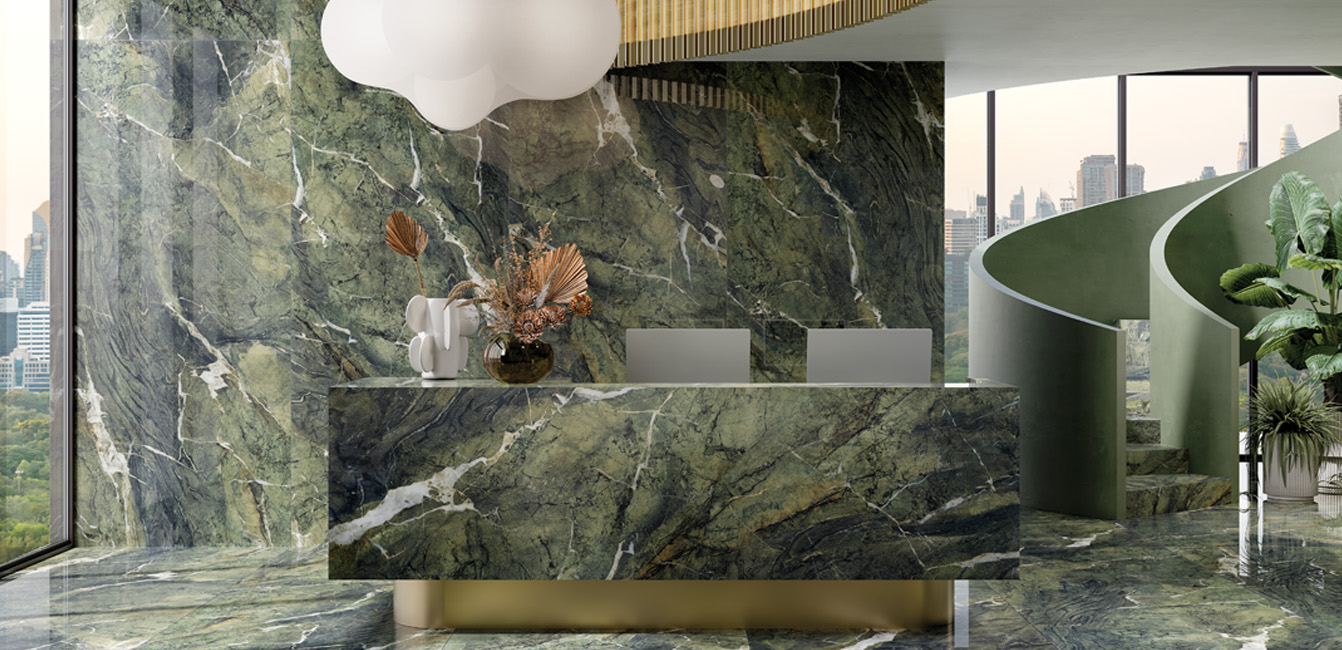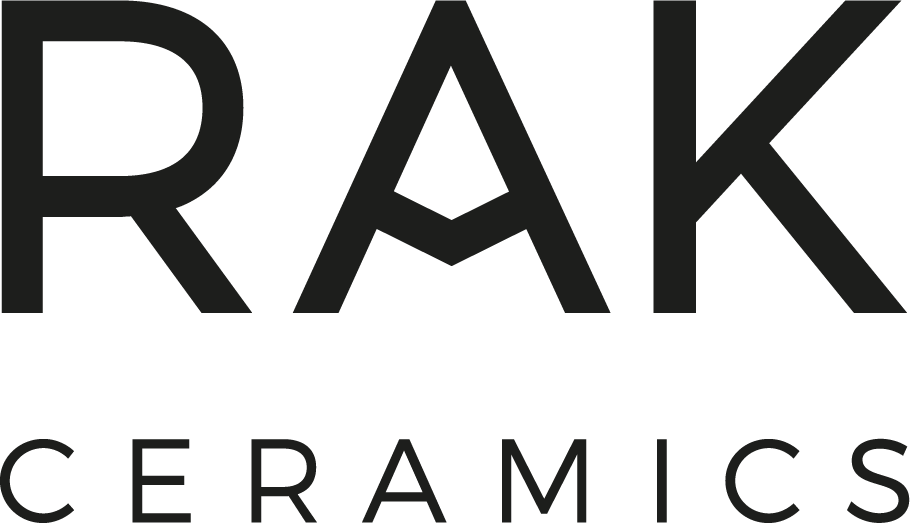
May 2024
- Group revenue: Experienced a decline of 11.4% to AED 781.6 million in Q1 2024, owing to ongoing geopolitical challenges and market conditions in core markets except the UAE market
- Gross profit margin: Robust improvement of 70bps year-on-year to reach 39.3% for Q1 2024, on account of production efficiencies, lower gas prices in the UAE and improved sales of premium and differentiated products.
- EBITDA performance: Year-on-year decrease of 3.9% in Q1 2024 to reach AED 151.0 million, accompanied by notable margin growth of 150bps at 19.3%.
- Net profit after tax: Q1 2024 net profit decreased 21.5% year-on-year to reach AED 62.9 million, with net profit margin decreasing to 8.0% compared to 9.1% in Q1 2023
- Financial health: Net debt decreased by AED 54.3 million in March 2024 to 1.37 billion. The net debt to EBITDA ratio improved from 2.20x to 2.13x in Q1 2024.
Ras Al Khaimah, United Arab Emirates, 10th May 2024: RAK Ceramics PJSC (Ticker: RAKCEC: Abu Dhabi), one of the largest ceramics lifestyle solutions providers in the world, announced today its financial results for the quarter ended 31st March 2024.
Q1 2024 Financial Highlights
Total revenue decreased 11.4% YoY to AED 781.6m in Q1 2024, predominantly due to challenging market situation and lower sales in Tiles, Sanitaryware and
Tableware segment whereas Faucets revenue increased 4.7% YoY.
Q1 2024, gross profit margin increased 70bps YoY at 39.3% due to operational efficiencies and lower gas price in UAE.
EBITDA decreased to AED 151.0m in Q1 2024, compared with AED 157.1m in the same period last year. EBITDA margins have improved to 19.3% compared to
17.8% in the comparable period last year.
Net profit after tax decreased to AED 62.9 million, compared to AED 80.1 million in Q1 2023. The impact of 9% UAE Corporate Tax is AED 8.0 million for Q1 2024. Net profit margin is 8.0%, down from 9.1% in Q1 2023. Net profit after minority interest decreased to AED 57.6 million, compared to AED 73.4 million last year, representing a margin of 7.4% compared to 8.3% last year.
Net debt decreased AED 54.3m in March 2024 at 1.37bn compared to Dec 23.
Net debt to EBITDA decreased from 2.20x in Dec 23 to 2.13x in March 2024
Segmental performance highlights
- Tiles revenue saw a year-on-year decline of 14.8% to AED 443.6 million, attributed primarily to lower volumes in Saudi Arabia and Europe. The logistics challenges triggered from the Red Sea crisis have impacted business in all export markets. Despite these challenges, we have been able to
mitigate any major impact to the gross margins. - Sanitaryware revenue experienced a notable 12.7% year-on-year decline, mainly due to significant challenges faced in key markets such as Italy and the UK as Europe continues to struggle with recessionary pressures and inflationary trends impacting consumer spending. Additionally, the ongoing crisis in the Red Sea has led to a substantial rise in shipping costs and prolonged delivery timelines.
- Tableware e Division registered a slowdown in revenue at AED 90 million on account of decreased hotel projects and spending due to ongoing regional conflicts. Despite a reduction in sales volume and overall revenue, Tableware segment registered a gross margins of 53.9%, a year-on-year improvement of 3.6%.
- Faucets revenue witnessed a 4.7% year-on-year increase, reaching AED 116.9 million mainly resulting from the continued efforts to enhance synergies. The gross margins also improved to 31.1%, thus registering a year-on-year growth of 4.5% due to cost efficiency and shifting production capabilities in UAE.
Commenting on the results, Abdallah Massaad, Group CEO, RAK Ceramics said:
“This quarter witnessed significant turbulence, marked with continued global geo-political and economic challenges. Major markets worldwide have been struggling to recover from recession thus dampening consumer spending. The ongoing challenge in red sea has added to the disruption of global value chains
and squeezed profit margins for all businesses.
Despite these challenges, we are committed to invest in our brand, improve and strengthen our manufacturing capabilities and expanding our market outreach.
Speaking about region-wise performance, the UAE market showed resilience registering an increase in market share and revenue growth.
In KSA, our revenue dipped mainly due to continued local competition specifically impacting our wholesale business. However, our gross margins improved as we continue to focus on premium products and differentiation by focusing on Projects.
While European market witnessed a decline in revenue, mainly impacted in the Sanitaryware division, our gross margins have sustained with nominal impact.
In Bangladesh, the market witnessed intense local competition, gas supply shortage, elevated costs of living and currency devaluation. We are working towards expanding our dealer networks and implementing several initiatives to increase penetration and brand visibility.
In India, despite revenue decline, the gross margin was stable, reporting nominal growth. Investments in market expansion and retail initiatives resulted in increased brand visibility and market share.
We remain confident in the long term growth drivers of the business and will continue to ramp up our production facilities, while enhancing customer value, fortifying our brand presence, and improving production efficiency. We are well-positioned to take on the ongoing market challenges and we remain
positive about accelerating growth and creating value for both shareholders and customers.”
Strategic Highlights
Expansion projects
• In Tiles division, the upgradation for our plant in India is closing towards completion. In the UAE we continue to invest in the latest technology to upgrade our plant to smart factories, thus increasing our production capabilities for large format Tiles. Additionally, we continue to work towards setting up production presence in Saudi Arabia.
• In sanitaryware division, we are upgrading the production facilities by adding new kilns allowing us to produce innovative products like smart toilets, aiming to enhance efficiency, decrease carbon emissions, and cut energy usage.
